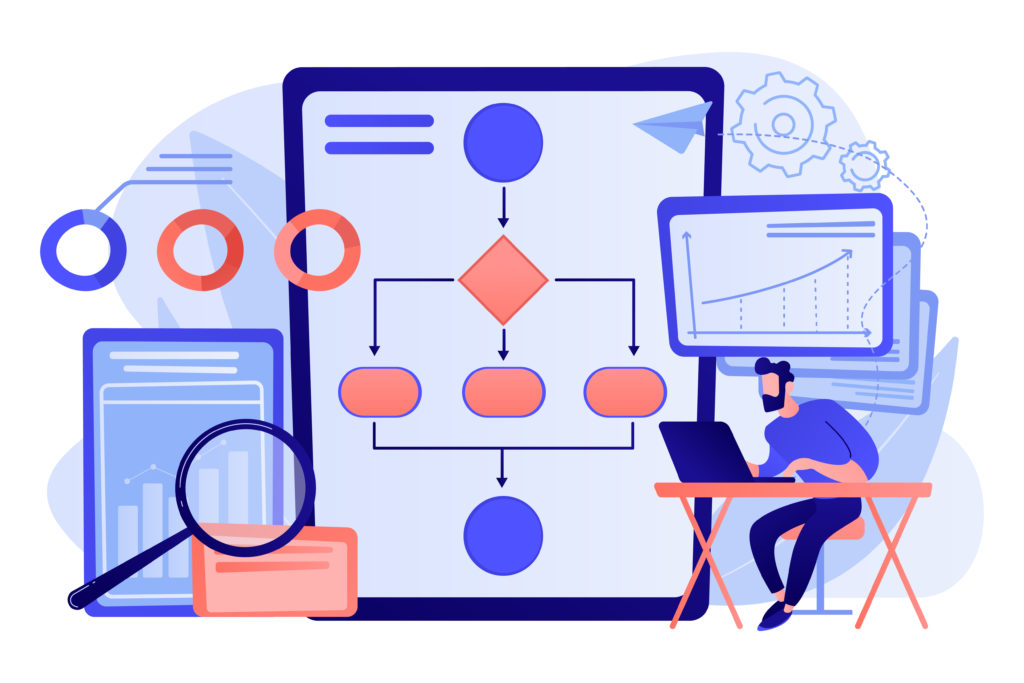
If you own a business, you understand the importance of ticketing and finding the right system for you.
A good ticketing system can make or break a business, whether it’s for customer support or IT ticketing.
Ticketing systems are extremely beneficial to businesses.
Benefits of adopting a ticketing system
The greater the number of customers who interact with your company, the greater the volume of customer support and service cases.
Unless you hire more customer service representatives to meet the increased demand, this increase increases the pressure on your team to multitask and solve problems at the same time.
The following are some of the main reasons why growing businesses should think about implementing a ticketing system for their customer service and support teams.
1. Centralizes everything

The first benefit of an online ticketing system is the centralization of information.
It acts as a record system, ensuring that nothing escapes your eyes.
It provides easy access to the system via web browsers and mobile apps, ensuring that all of your service information is centralized.
It also allows you to communicate with different clients from within the ticketing system. This collaborative working environment ensures that nothing is left unresolved.
2. Easy and effective team collaboration

Ticketing systems encourage greater cooperation among members of your customer support team by providing collaboration features such as ticket transfer and escalation to senior team members, internal messaging capabilities, adding private notes to tickets that are visible only to agents, and more.
Ticket management systems’ shared visibility enables multiple agents to work on the same case or exchange critical information, allowing issues to be resolved more quickly.
3. Helps prioritize workflow

A ticketing system allows you to better prioritize your workflow. It generates a “ticket” that documents customer requests, allowing your team to prioritize important tasks and resolve pressing issues. You can also create specific categories based on the importance of tasks and assign them a rank. Nothing will be left unresolved, whether it is a minor issue or a major one.
10 important factors you should consider when evaluating an online ticketing system

The best online ticketing system should be engaging and appealing to your customers, assisting in sales and providing a positive guest experience. It should allow you to sell everything you need to sell online without limiting your options.
Above all, whether you’re planning events, promoting your tickets, analyzing data, or contacting customer service, it should be simple for your team to manage.
When looking for your next online ticketing system, keep the following in mind:
1. Reliability
How can you be sure you’re getting the best ticketing software for your needs?
Nobody wants to replace their current system with something less dependable, so you must be certain that your new event ticket system is completely reliable.
An efficient and reliable ticketing system enables organizations to streamline their service management or help desk operations. It also helps you maintain end-user and customer satisfaction. This is critical for businesses looking to avoid customer churn.
2. Security and Compliance Features
Along with reliability, you must be confident that your online ticketing provider can provide an exceptional level of trust and security.
With all of your customers’ private information stored in your help desk and an entire team of people accessing it, security is critical. Look for a tool that allows you to restrict access to specific areas to only those who need it.
3. Data Access
You should have full access to your data. Make sure that you can access all of the data you collect, even if it is years later.
And you should be able to access your data whenever you want, on whatever device you want. Access to your data should not be limited to weekly or infrequent ‘reports’ sent to you by your provider.
4. Reporting and Metrics
The right tool will give you the metrics you need to know about your team’s busiest hours, average first response and resolution times, how many customers access your knowledge base articles, and more.
The best tools will also make these metrics easy to access and understand.
Check for reporting features such as advanced filtering, the ability to save custom views for future use, and export options if you need to access your data in a spreadsheet outside of the software.
5. An Intuitive User Experience
Fact: Every little thing that improves the user experience will help you sell more tickets. And anything that makes it worse will cost you sales.
Consider the overall, the ways your team currently works successfully, then ask yourselves the following questions:
- Is the interface easy to use and intuitive?
- Is the system quick to load and change?
- Is it simple to find the options that your team will most likely use?
- Can you easily change the workflow without contacting an administrator?
Going through the process yourself is the best way to test these.
6. Promotion
The question is, how much assistance can your ticketing partner offer you in terms of marketing and promotions?
Here’s what you should look for:
- Email: Because email is still the most popular method of ticket sales in the event industry, you must ensure that your ticketing provider can assist you in delivering and tracking emails to your target attendees.
- Social media: Social media platforms help events get the word out, drive brand engagement, and ultimately sell tickets.
- Google: Look for a service provider who can assist you in reaching the top of Google’s extremely important search results.
7. Mobile
According to Ibotta, a mobile technology company, that proportion is even higher in younger demographics, reaching 61 percent among Gen Z.
So, make sure that your online ticketing system is 100% mobile optimized. Customers spend an inordinate amount of time on their phones. They intend to use them to browse your store, gain access to deals and promotions, and read product reviews.
8. Great Customer Support
A 24/7 customer support unit is highly recommended.
You must have someone you can rely on at all times – a dedicated, well-trained, knowledgeable, and friendly team that is available via email or phone 24 hours a day, seven days a week.
Whether you have a quick question or require strategic advice, they should be able to respond as soon as possible.
9. Third-party Integrations
While a developer at your company may be able to create custom integrations for you, it is much easier to get up and running if the software/provider you choose integrates with other tools you require right out of the box.
10. Scalability
If you anticipate that your team, support volume, or company will expand in the coming years, you must also consider the scalability of the software/provider you select:
- Is the tool equipped with features such as workflows and API access that will allow you to automate repetitive tasks as your support volume grows?
- Does the plan you’re considering include these features, or will you have to upgrade to a more expensive plan to get them?
- Do you expect future costs to be higher than your budget allows if you need to upgrade?
Doing some forward planning now can save you the headache of switching tools again in a year or two if you discover too late that your online ticketing solutions will not scale your needs.
Conclusion
There are a lot to consider and questions to ask when choosing the right online ticket system. However, the stakes are high, so it’s worth your time to find the right one, as it will make life easy for you.
Now that you know what to look for in an online ticketing solution, contact Shopfront Solutions to get a demo. Or visit our website to read more useful articles like this.